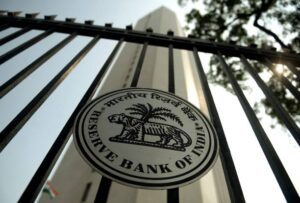WHAT MEANS BANK-
Bank essential means for financial transactions to offer services to individuals, businesses, and Government of accept deposits, make loans and other financial services. So Bank provides other services such as currency exchange, investment options such as stock and mutual funds, consultancy services, certificate of deposits and many more. Bank is very playing important role for growing for country because it connects two countries or states it transacted transactions. RBI bank is bank of all banks it is the apex bank in INDIA it controls and regulates all types of bank in INDIA like private banks, public sector banks, FORGEIN banks, regional rural banks and many more banks.As a keeper of monetary resources, banks take in deposits from the general public and provide credit in the form of loans. This dual function promotes growth and the flow of money, enabling economic activity. A wide range of financial services are provided by banks, such as checking and savings accounts, credit options, and investment opportunities. Banks make a substantial contribution to the growth and stability of economies all around the world through these operations.Now we will understand functions and types of banks in INDIA.

THE MAIN FUNCTIONS OF BANKING SYSTEM ARE-:
1: DEPOSITS SERVICE:
Banks provide safe place to deposits money it is the liability for banks because banks will pay to customer in future it is the first main function of bank. There are 2 types of account in which customers can deposits own money in bank savings account (for individuals) and current account for business.
2:LOANS AND CREDITS:
Banks lend their money to individuals, business and government on interest basis it means banks provide loan facilities to our customers. There are different types of loans that is personal loans, mortgages, and business loans it is the source of revenue for bank because interest is charged by banks. Personal loans are those loans taken up by customers for personally like for car, home, laptop etc while mortgages simple means pledge something, like loan against property and business loan taken up by businessman special for operational in business.
3:INVESTMENT SERVICES:
Digital era is coming banks are also involved in investment services by digitally mostly banks provide investment services like mutual funds, stock option, etc now first of all we understand the meaning of mutual funds company that pools money from many investors securities in this type of investment banks charged fee as a income this is very good option for after retirement while stocks means shareholder purchases ownership in company that is also very good option for youngsters.
4:ONLINE AND MOBILE BANKING:
In the modern era banks provide online and mobile banking it includes customers have to options of manage accounts, online bill payments, and pay bills. now a days every banks provides this type of facilities customers are easy to track records and transactions easily on their phones it includes other services like fixed deposits, e-statement, and mutual funds etc.
TYPES OF BANKS IN INDIA:
1: SCHEDULED COMMERCIAL BANKS: These banks regulated by Reserve bank of India.
A: Public sector banks: These types of banks owned by government of India like state of bank, bank of BARODA etc.
B: Private sector banks: This types of banks owned by private players like HDFC bank, ICICI bank and many more.
C: FORGEIN banks: These banks headquartered outside INDIA but operated in INDIA for example standard chartered, CITI bank.
2: REGIONAL RURAL BANKS: These types of banks are specially made up for rural development only these banks located in rural areas for growth of rural regions like PRATHMA bank.
3: COOPERATIVE BANKS: COOPERATVE banks are financial institutions that are owned and regulated by members of COOPERATIVE like JILA SAHKARI BANK .
4: PAYMENTS BANKS: In the digital era this type of banks are growing up by time this banks don’t provide loans but provides only online payments examples are airtel payment bank, and Paytm payment bank.
5: CENTRAL BANK: This is apex bank of INDIA it regulates all banks called RBI bank this introduces in 1934.
How to choose right bank for account;

It’s important to carefully analyse your financial needs and preferences before choosing a bank. Begin by determining your basic needs, including the kinds of accounts you require (savings, checking), how often you want to transact, and any particular services you would like. Take into account the following elements:
Charges and Fees:
Seek out a bank that offers clear fee schedules. Evaluate ATM costs, monthly maintenance fees, and any other expenses related to the accounts. Certain banks waive fees if certain requirements are met.
Rates of Interest:
When starting a savings account, make sure to compare interest rates. Selecting a bank with competitive rates will enable your funds to increase over time.
Availability:
Assess the bank’s ease of access. Verify the accessibility of branch locations, ATMs, and online and mobile banking options. Select a bank that will work with the access ways that you like.
Client Support:
Examine the reputation of the bank’s customer service. Examine testimonials or ask for referrals to find out how accommodating and kind their customer service is. Addressing problems or questions requires competent customer service.
Options for Accounts:
Think about the range of accounts that the bank provides. Whether you’re looking for a high-yield savings account, specialised accounts, or a simple checking account, be sure they have options that meet your needs.
Minimum Requirements for Balance:
Recognise any minimum balance requirements linked to the respective accounts. If your balance is less than a specific amount, some banks could charge you fees.
Features and Technology:
Evaluate the technology capabilities of the bank. Look for options like budgeting tools, mobile cheque deposit, and online bill payment. Select a bank that offers convenient, up-to-date banking services.
Security Procedures:
Verify if the bank has implemented strong security protocols to safeguard your personal financial data. Your accounts can be safer with features like encryption and two-factor authentication.
In summary, It’s important to carefully consider your financial needs and preferences before choosing a bank. Take into account elements including costs, interest rates, availability, account choices, minimum balance requirements, technology features, security precautions, reviews, and community involvement.
